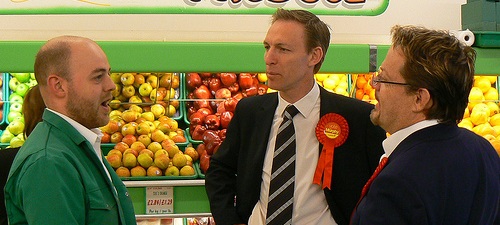The time of austerity is coming to an end. Or at least that is the overaching message of party conference season. It invites the bigger question of whether the Conservatives would actually be willing and able to deliver it's end.
Last year's election showed the Tories that even a coordinated media bashing of Corbyn wasn't enough to dampen enthusiasm for the content of the Labour manifesto and their call for a step change away from the time of austerity.
The Conservatives know they have to adapt. But they will start only by changing their message, rather than reinforcing that with any particularly drastic change in funding - hence Theresa May telling Prime Ministers Questions that austerity was going to end, but not 'fiscal responsibility'.
The Chancellor Philip Hammond used his conference speech to hint at a change of message, telling party members the Conservatives couldn't afford to be a party of 'no change'. The Prime Minister followed that up by saying austerity was coming to an end.
Opposition scepticism is entirely appropriate.
The Tories will be reluctant converts to the anti-austerity cause (except, perhaps those in local government), and the move was probably forced Labour's unabashed commitments to higher taxes, more spending and a definitive end to austerity.
In fact, Paul Johnson at the Institute for Fiscal Studies (IFS) called the Labour proposals the most radical in a long time, capable of deeply affecting the UK economy, and transforming expectations and assumptions about how the economy will work.
The other main lesson of conference season was, obviously, Brexit. As it has taken over every other aspect of politics in Britain, so it has taken over party conference season.
The Tories were, as usual, mired in their three way factional splits - hard right Brexiters, moderate Remainers and Theresa May's split the difference
However, Labour took a step towards laying out in more certain terms their position - with the party more or less all onboard. The party's red lines, particularly a customs union agreement, were supplemented by a commitment to a People's Vote second referendum in the event that final deal fails to pass muster.
The party's preference remains to force an election on Brexit, but the concession Labour's Remainers, to support a People's Vote to ensure the public get a say, is a step towards bringing the party to a (mostly) united position.
Meanwhile, as would be expected, the Liberal Democrats lambasted all who would oppose a People's Vote second referendum. But beneath the business as usual, it was good to see the party's radical liberal factions put some progressive ideas on the table - such as a sovereign wealth fund and more support for cooperatives.
The Greens had the same mix of Brexit and domestic policy at their conference. On the domestic front, they pushed for wellbeing - particularly relating to free time - to get a higher place in our measurement of the UK's economic and living standards.
Finally, the SNP joined their push for a second referendum on Scottish Independence with opening the way for their MPs to support a second referendum on Brexit. While it isn't a straightforward piece of arithmetic, opposing Brexit is consistent with how people in Scotland have voted and may prepare better ground for their own ambitions.
The onrolling Brexit steamroller aside, the end of austerity was the biggest headline. It would seem that Theresa May is right, that austerity coming to an end - but in spite of them, not because of them. The Tories seem to sense the mood is shifting.
There is a big opportunity ahead for the progressive parties, to undermine the case for austerity and drag out into the light the ideological choices that enforced it and the consequences of the Conservative choice to impose it.












